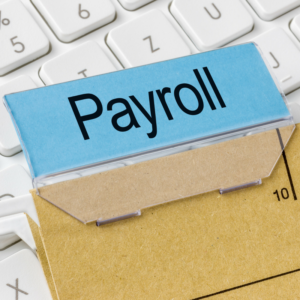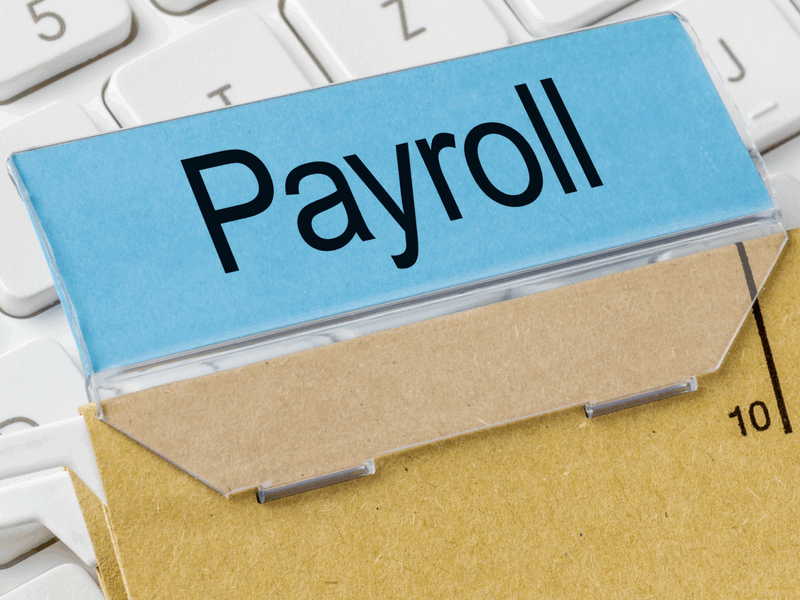 A client came to see me because the IRS was threatening to shut down his business for non-payment of payroll taxes of over $100,000. I asked why the taxes hadn’t been paid and he told me that he had cash flow problems so he used the payroll taxes as a short term, low interest loan from the IRS.
A client came to see me because the IRS was threatening to shut down his business for non-payment of payroll taxes of over $100,000. I asked why the taxes hadn’t been paid and he told me that he had cash flow problems so he used the payroll taxes as a short term, low interest loan from the IRS.
Employers are required to withhold the payroll taxes from their employees’ paychecks and to pay the taxes quarterly to the IRS and state taxing authority (the Employment Development Department (“EDD”) in California). If your company uses a payroll service, then the payroll service requires that you fund the total payroll, including the employers’ and employees’ share of the payroll taxes (“withholding” taxes), each pay period. The payroll service holds the money until the payments are to be made to the IRS and the EDD.
Often businesses operating on the edge financially decide not to pay for the payroll service and choose to do their own payroll and tax reporting. While this may save money in the short term, it often costs more money in the long term if the management is not completely diligent about paying the taxes as they fall due. Federal interest rates are quite low (less than 5%), but penalties can increase the tax liability significantly rather quickly.
For the company whose regular cash flow cannot sustain the ordinary business expenses plus taxes, there is the temptation to take the money which would otherwise be set aside for taxes and use it to cover operating expenses, with the hope that the money will come in before the taxes have to be paid. This thinking is much like a gambler who hopes that the next hand or roll of the dice will be the winner which will cover the losses.
After awhile, the debt may become overwhelming, and rather than tackle the problem head-on, the business owner may stick his head in the sand and try to ignore the problem. The IRS generally sends several notices and opportunities to contest the tax assessment or make an arrangement to cure the default, but if they don’t hear from you, they will show up at the business and shut it down, causing even more financial stress for the company and its owners.
The IRS treats payroll taxes differently from income taxes, taking a much harder position on those who fail to make payroll tax payments. The reason is that the withholdings represent the employee’s money which is taken from them for the benefit of the IRS and are not the business’ funds. The IRS takes the position that the business has “stolen” the money from the employee and from the IRS. Therefore, while they may be fairly generous in workouts with people who owe income taxes, the IRS is much less forgiving of those who don’t pay withholding taxes.
The IRS’s unwillingness to assist businesses who owe withholding taxes may also be due to the fact that, under Federal Law, not only is the business liable for the payment of the taxes, but so is anyone the IRS can hold to be a “responsible person.” A responsible individual for tax liability purposes is anyone who makes financial decisions for the company. All business owners, directors, and officers can be responsible individuals. Perhaps surprisingly, so can bookkeepers and those in the finance department who decide which bills to pay when, or otherwise take part in the day to day finances of the company. Someone who is targeted by the IRS can try to show that they only handle ministerial duties and do not take part in the decision making, but until they can satisfy the IRS, the employee has to handle the scrutiny and stress of having the IRS pursue them. Not the best way to keep valuable employees.
If you can’t work out a voluntary payment arrangement with the IRS, what can you do? The IRS’ collection processes are powerful and wide-spread. They can levy on bank accounts, have customers send payments to them instead of the business, put liens on assets and ultimately shut down the business altogether.
The Bankruptcy Code may offer a way out for the business facing IRS shut-down or other collection efforts which interfere with the business operations. A Chapter 11 reorganization will allow the business to keep operating and to pay off the taxes over a period of time, up to six years. Reorganization works pretty well for businesses that suffer a temporary setback in cash flow, but otherwise have a positive cash flow, or can take steps necessary to increase cash flow. If the business can successfully reorganize and come up with a reasonable repayment plan for the IRS, they will likely also protect the individuals from exposure, so long as the payments are made.

